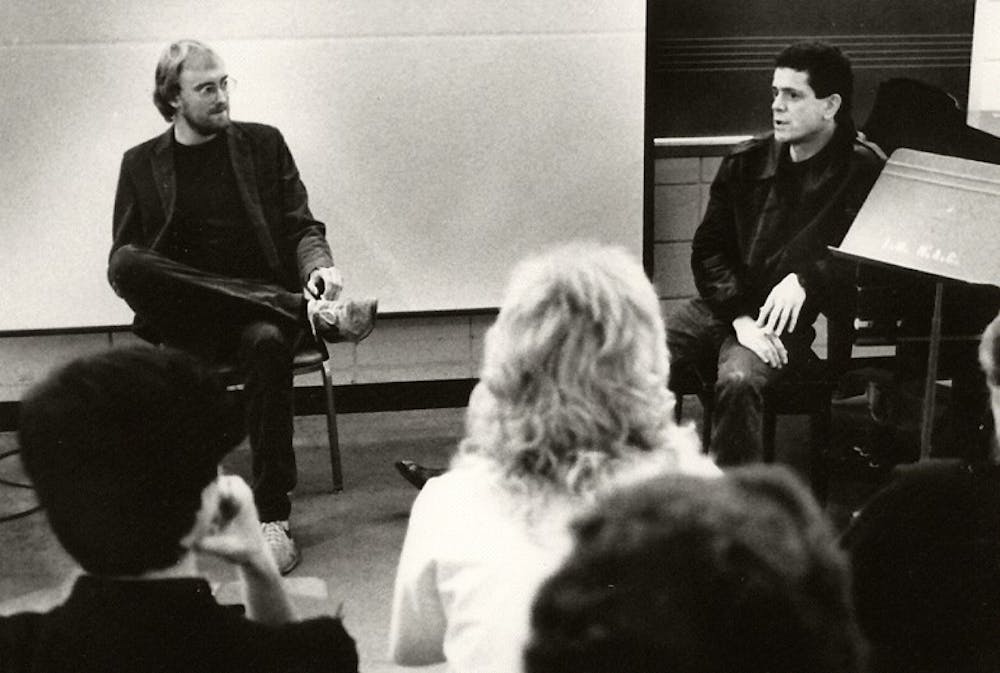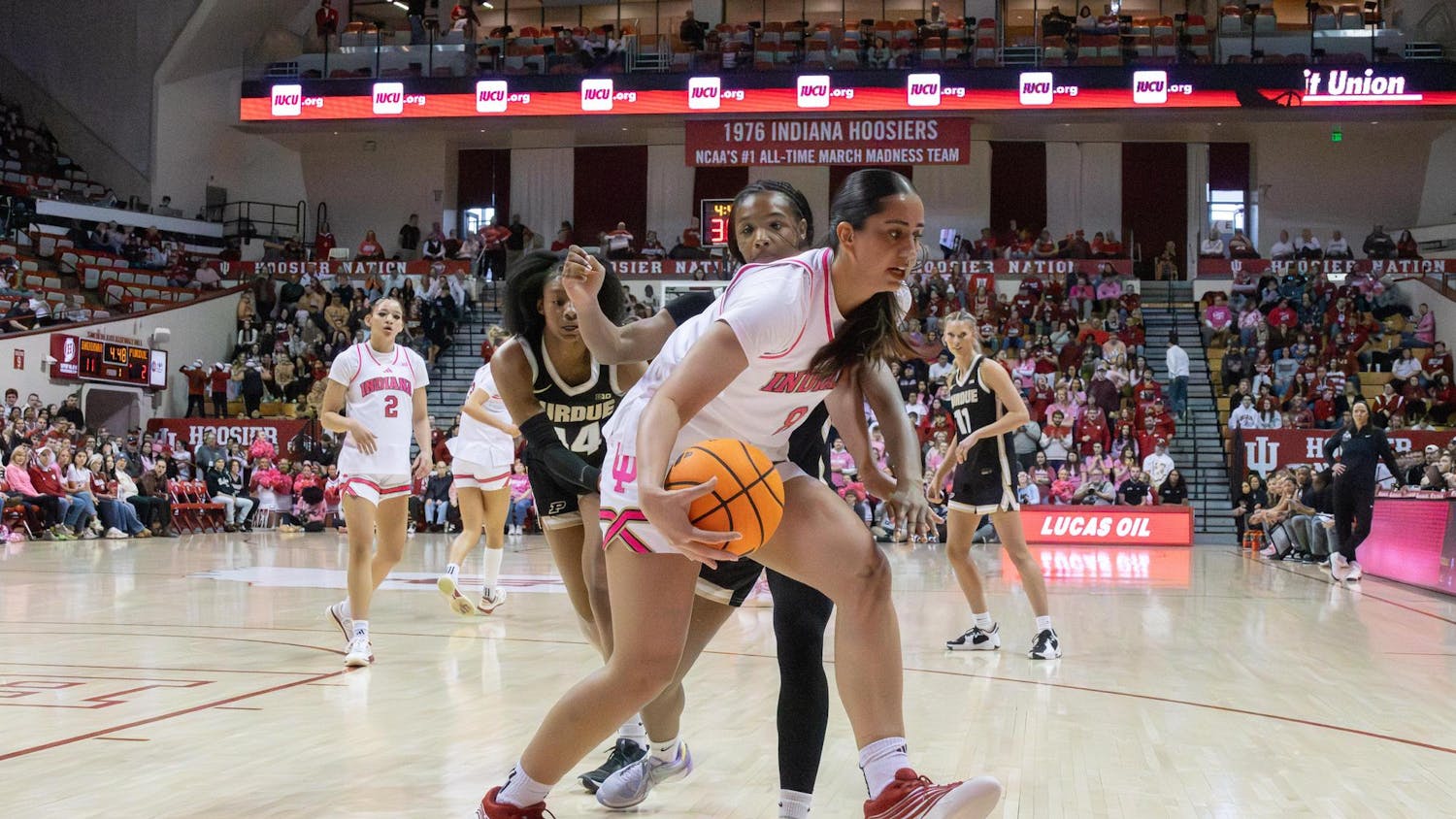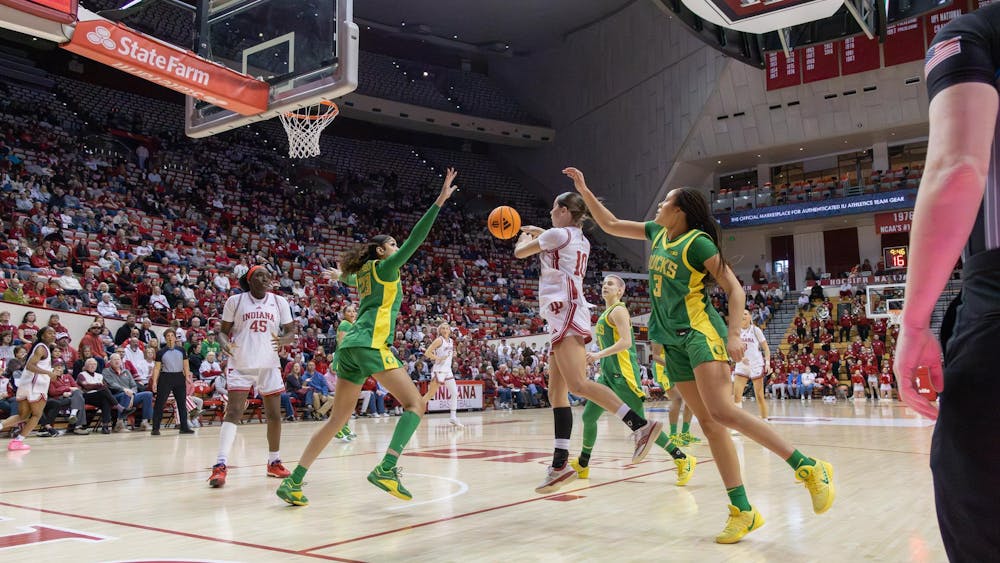If ever there was a human personification of rock ’n’ roll, it would have been Lou Reed.
The Velvet Underground’s frontman and songwriter was never without a leather jacket and usually dressed in all-black to match. He wore dark sunglasses and a grimace. He spoke low and with an identifiable New York City accent.
In the years since Reed’s death in Oct. 2013, IU alumnus Anthony DeCurtis has been working to analyze and break apart this persona of Reed through his forthcoming biography “Lou Reed: A Life,” set to debut Oct. 10.
“I would have never have done it while he was alive,” DeCurtis said. “He would have felt betrayed, in a certain way. But once he was dead, I felt that he deserved it.”
Other biographies of Reed exist but have been built on the thesis that Reed was a monster.
“I think people who would think of him as a real tough-hearted, drug-addicted, savaged New York beast would be surprised how genuinely pleasant he was to be around,” IU rock history professor Glenn Gass said.
Gass makes a cameo halfway through the book with the mention of Reed’s September 1987 visit to Bloomington and Gass’ history of rock ’n’ roll class.
Reed was visiting Heartland rocker John Mellencamp before the charity music festival Farm Aid. At a time of great popularity and fame for both musicians, the duo did an unannounced gig at the intimate Bluebird Nightclub to practice their festival sets.
“It was a ridiculous night,” Gass said. “It was just fantastic. It was the best Bloomington night I ever experienced.”
After the show, he wrote his phone number on a matchbook for Reed, who didn’t believe Gass had a history of rock ’n’ roll class.
“I knew that was the last I’d ever hear from him,” Gass said.
Reed called the next morning.
“Are they rude?” he asked of the students.
“I don’t want to talk,” he said, just wanting to take questions from students.
“I could stop in for 10 or 15 minutes,” he decided.
“He was very paranoid about it,” Gass said. “He said he had never done anything like this before. Just was nervous, visibly shaking all the way to the classroom. He was afraid he was going to walk in and people were just going to stare at him.”
The class exploded in screams, claps and whistles when he entered. He ended up staying the entirety of the class.
“It was kind of like a dream come true when you’re a rock history teacher, to have Lou Reed come in and spend an hour and a half,” Gass said.
Few people have seen the vulnerable and insecure Reed who feared college students. Underneath his rock ’n’ roll persona was a lot of fear, DeCurtis said.
This three-dimensional presentation of Reed in the biography sets DeCurtis’ biography apart from others done about Reed, he said.
DeCurtis interviewed Reed’s childhood friends, ex-wives and band members, but DeCurtis, a contributing editor for Rolling Stone magazine, writing there for more than 30 years, also had a relationship with Reed throughout his career.
They ran in the same circles, both living in New York City and being involved in the music scene. DeCurtis said he sometimes ran into him on the street or at parties.
Reed felt DeCurtis saw him the way he saw himself, Reed once told him.
“People always say to me, ‘Why don’t you get along with critics?” Reed said in 2012 at the University of Pennsylvania, where DeCurtis teaches creative writing. “I tell them, ‘I get along fine with Anthony DeCurtis.’ Shuts them right up.”
Although Reed would never admit it, DeCurtis said Reed was impressed by DeCurtis’ Ph.D., which he earned in American literature at IU in 1980. Reed, an English major, saw himself as a literary guy, DeCurtis said. He liked the attention from DeCurtis.
When Reed died from liver complications four years ago, people reached out to DeCurtis to talk about Reed, which triggered the idea of a biography.
“The timing was right, the subject was right and there was interest,” DeCurtis said. He had already written numerous other books, including collaborating with music executive Clive Davis for his autobiography.
In all modesty, DeCurtis said, he is a better reporter, critic and writer than the other biographers who had tackled Reed before.
“I can’t think of anyone who’s written music that I like better,” Gass said of DeCurtis. "He’s a true fan. That’s the main thing – he writes as a fan, not as a critic.”
DeCurtis calls Reed one of the most influential songwriters in the history of rock ’n’ roll. He said that aspect was missing from other biographies of him.
“Anthony is a great storyteller, a writer’s writer, turning pain into beauty the way Lou did in his songs,” U2 lead singer Bono said in a review of the biography.
The book has garnered positive reviews from other musicians like Sting, of the Police and R.E.M.’s Peter Buck, along with other writers and publications.
“I couldn’t be happier,” DeCurtis said. “It feels like I’m waiting for Christmas.”






